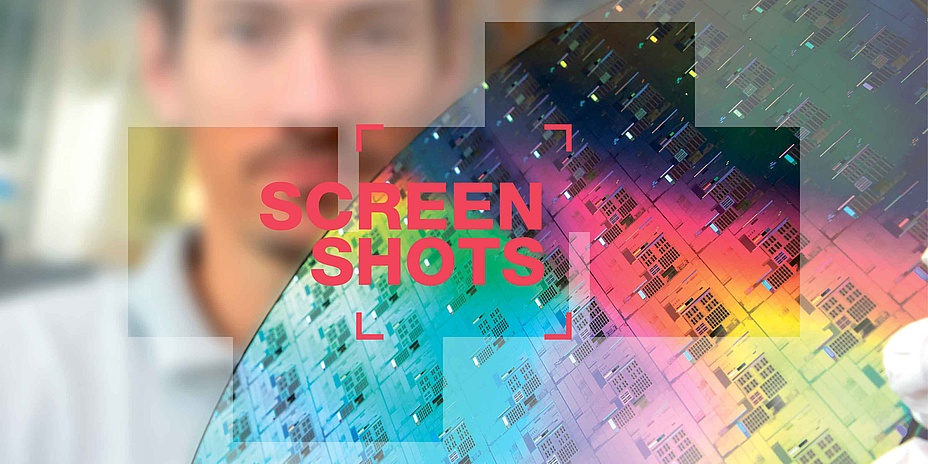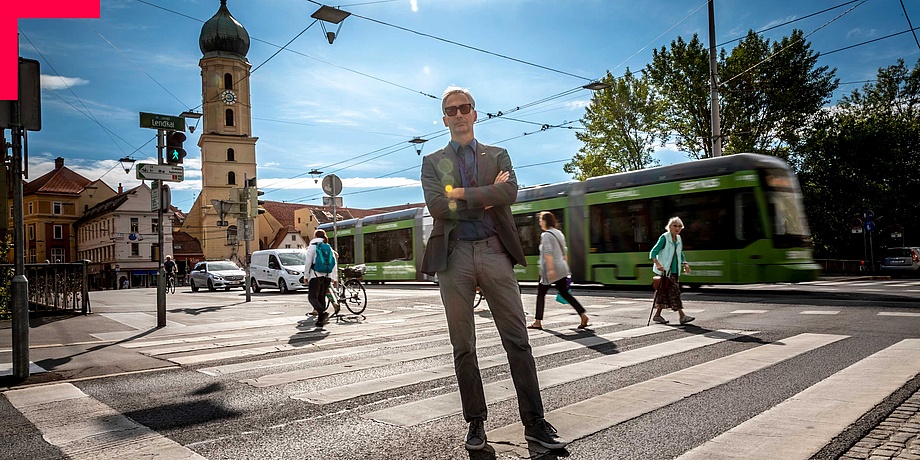75 billion everyday objects – from the smart watch and the self-driven car to entire production plants in Industry 4.0 – are to be joined up by 2025. We use the term the Internet of Things (IoT). "The integration of small computers into our everyday world, which use sensors to perceive their surroundings and exchange information," explains Kay Römer. Römer is head of the Institute of Technical Informatics at TU Graz.
And what exactly is meant here by "dependability"? The expert explains this by making an analogy with the bank: "I want correct information, availability around the clock and of course security."
In the beginning, IoT consisted of "gadgets" such as a smart refrigerator that automatically reorders the milk. Or the smart watch for running. "Even with these IoT applications it’s not pleasant when they fail, but the consequences are usually not life-threatening. But it can be completely different if a breakdown occurs in an intelligent factory or a self-driving car..."
The lead project Dependability in the Internet of Things, which Römer heads at TU Graz, is dedicated to these challenges.
"We were among the first to look at all the different aspects that play a role in dependability from the perspective of different disciplines. This system view is immensely important because the whole thing works like a chain. It breaks at the weakest point and this then affects the whole system."
The multidisciplinary research team is concerned with safety, among other things: "Up to now, hackers and manufacturers have been racing against each other – who will discover security holes earlier? To get out of this ‘hare and hedgehog game', we take a mathematical approach. We want to be able to prove that a system is secure."
The project also focuses on the lack of traceability of artificial intelligence (AI). "You can imagine it like children who learn an immense amount every day. But I don't know where they will go with what they have learned in a few years – I don't know with AI either. Especially with things like the self-driving car, we want to be sure that the AI has 'learned' correctly. Whether it’s a pedestrian or a shadow, for example."
Guaranteed no bugs
In a modern car, up to 100 microprocessors interact with each other. This is called an embedded system. These are electronic components that are built into objects.
"When I step on the brakes, the processors involved must function dependably," says Bernhard Aichernig, using an example. He heads the TU Graz-SAL Dependable Embedded Systems Lab (DES LAB). Graz University of Technology operates it together with Silicon Austria Labs (SAL) to research into the basics of reliable electronic systems. This cooperation once more underpins the fact that TU Graz is regarded as the most important research partner of the domestic electronics industry. For decades, it has also been addressing the ever closer interrelationship between electronics and information technology in education.
In the DES LAB, Aichernig and his colleagues are working on approaches to zero-bug software. "We automate test procedures to make them more efficient. And there are also possibilities to prove mathematically and logically, that a software fulfils certain properties. Then a guarantee can be given, which is not usually the case at present. You should not accept this, especially if such software is running in a car, for example." Dependability is also a top issue when it comes to infrastructure issues – keyword "blackout". Aichernig advocates regulation of software: "We need minimum standards here, similar to those we have today in environmental protection."
The human brain as a model
The environmental aspect is also receiving increasing attention on the internet and in the field of artificial intelligence. AI systems require an immense amount of energy. The Institute of Theoretical Computer Science is working on making AI more energy efficient. There is a great model for this: the human brain. This research area is known as brain-inspired computing.
"In terms of computing power, the brain is comparable to a supercomputer. But such a system would require as much power as a district of Graz, while the brain only needs 20 watts," says researcher Wolfgang Maass strikingly. "Unlike in a supercomputer, only those neurons that are currently needed are active in the brain."
Maass and his team are part of the European lighthouse project Human Brain Project and have developed the new learning algorithm e-prop. This enables the training of particularly energy-efficient, brain-like networks of neurons that communicate by means of electrical impulses (spikes). In addition, e-prop – unlike most of the learning algorithms used so far – does not require a running data transfer between the memory and the processor. This saves additional energy. Robert Legenstein from the Institute of Theoretical Computer Science explains: "In edge computing, where data processing takes place directly in a self-driven car or an IoT device and data is not sent from the device to the cloud, energy efficiency is crucial." The goal is to reduce CO2 emissions from AI systems through edge computing, says Legenstein, describing the change towards greater sustainability.
Challenge accepted
"Don't feed the bugs" is the credo of LosFuzzys. This is one of numerous student teams at TU Graz where students can deepen their practical skills. At the young hacker European championship, the European Cyber Security Challenge 2019, the team reached 3rd place. Another one of the 16 student competition teams is the TU Graz Data Team, which continually participates in business oriented data science challenges.

Researchers at TU Graz are looking for solutions to the burning problems of the present. What topics are currently on their radars and what you can study to change the future, you can find out on TU Graz screenshots.
